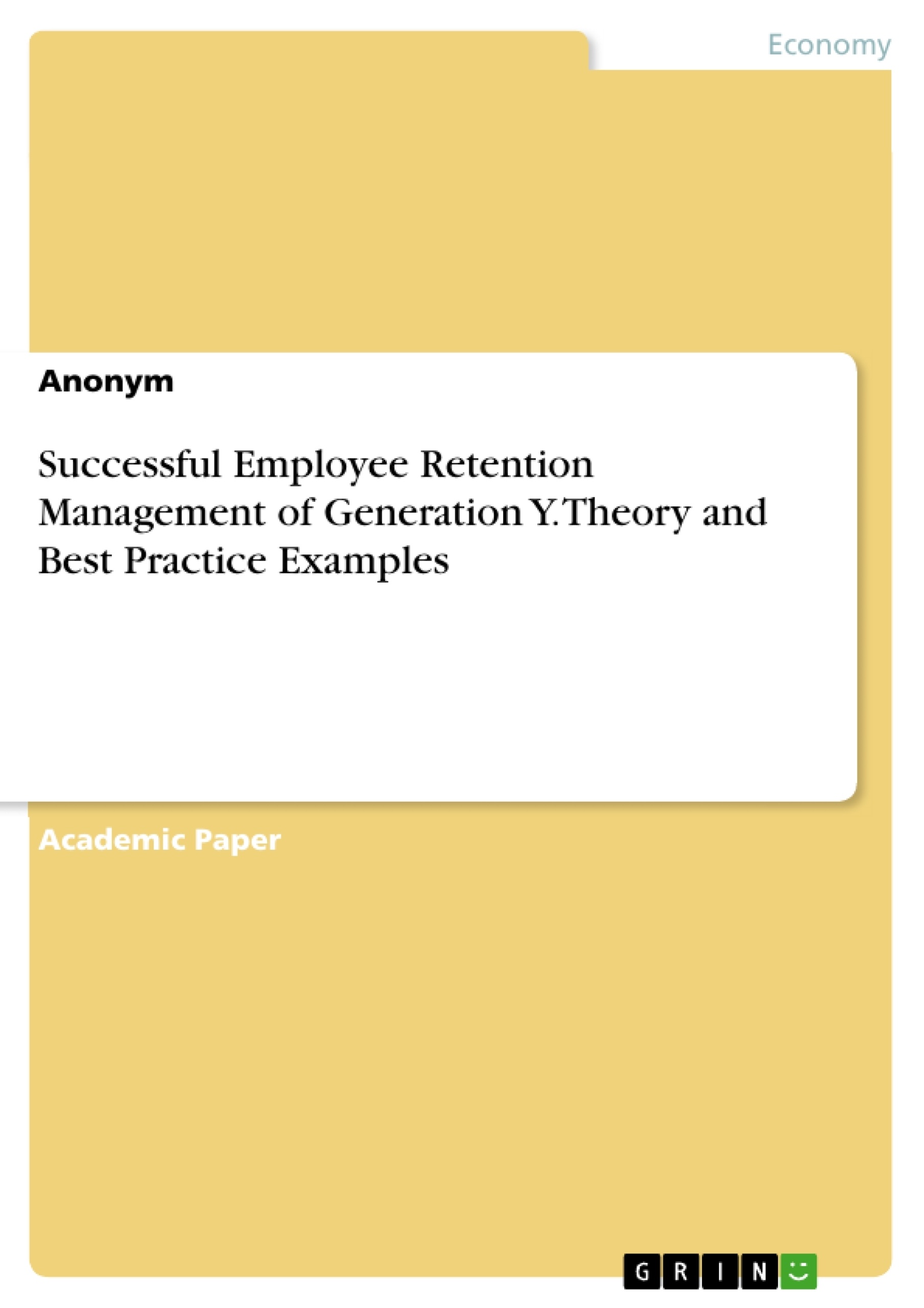This paper will discuss successful organizational strategies that attract and retain Generation Y employees, also known as Millennials and provide best practice examples from two multinational companies.
The topic of employee retention is becoming more and more critical for companies. It is not just about the high fluctuation costs that arise when an employee leaves a company. Other factors will cause companies much more concern. For example, the demographic change, which makes it more difficult for companies to find good employees, or the high losses that can result from the employee's lack of attachment to the company.
Given the importance of employee loyalty, the question arises as to how this can be increased. Various models are supposed to lead to higher employee loyalty. The proven theory of customer loyalty research is best suited to show the determining factors for employee loyalty.
Inhaltsverzeichnis (Table of Contents)
- ABSTRACT
- INTRODUCTION
- PROBLEM AND PURPOSE OF PAPER
- LITERATURE REVIEW
- METHODOLOGY AND RESEARCH APPROACH
- BEST PRACTICE EXAMPLES TO RETAIN GENERATION Y
- RECOMMENDATIONS
- CONCLUSION
- REFERENCES
Zielsetzung und Themenschwerpunkte (Objectives and Key Themes)
The paper aims to explore the challenges of attracting and retaining Generation Y employees within organizations and offer practical solutions for successful employee retention management. The study examines the theoretical framework of retention management, analyzing the characteristics and expectations of Generation Y employees, and exploring best practice examples from multinational companies.
- Employee retention management as a strategy for attracting and retaining Generation Y
- The characteristics and expectations of Generation Y employees
- Best practice examples of retention management strategies
- The impact of generational differences on organizational success
- The role of Human Resource Management (HRM) in fostering employee loyalty
Zusammenfassung der Kapitel (Chapter Summaries)
- Introduction: This section discusses the importance of employee retention in today's competitive business landscape, highlighting the challenges posed by demographic changes and the emergence of Generation Y as a dominant workforce segment. It also introduces the research question: How can retention management be effectively applied to attract and retain Generation Y employees?
- Problem and Purpose of Paper: This section elaborates on the challenges of attracting and retaining Generation Y employees, emphasizing the need for effective retention management strategies. The section delves into the "war for talents," highlighting the importance of attracting, inspiring, and winning over skilled workers. It also emphasizes the role of human resources in fostering employee loyalty and performance.
- Literature Review: This section will present a comprehensive review of relevant research on employee retention management, focusing on the characteristics and expectations of Generation Y employees. It will also explore existing theories on employee loyalty and retention, examining their relevance to the contemporary workforce.
- Methodology and Research Approach: This section will outline the research methodology and approach employed in the study. It will clarify the data collection and analysis methods used to explore the relationship between retention management and Generation Y employee retention.
- Best Practice Examples to Retain Generation Y: This section will present and analyze best practice examples of successful retention management strategies implemented by multinational companies such as Google and Daimler. The focus will be on how these companies have effectively attracted and retained Generation Y employees.
Schlüsselwörter (Keywords)
The primary focus of this research paper is on the effective management of employee retention, particularly within the context of Generation Y employees. The paper explores the complexities of attracting and retaining millennial employees, analyzing best practice strategies from multinational companies like Google and Daimler. Key terms and concepts include employee retention management, Generation Y, Millennials, Human Resource Management Strategies, employee loyalty, demographic changes, and the "war for talents."
Frequently Asked Questions
Why is employee retention critical for modern companies?
Retention is vital due to high fluctuation costs, demographic changes making recruitment harder, and the loss of institutional knowledge when employees lack attachment.
What are the specific expectations of Generation Y (Millennials) in the workplace?
Millennials typically value work-life balance, meaningful tasks, continuous feedback, and opportunities for personal development over traditional hierarchy.
Which companies are used as best practice examples for retention?
The paper analyzes successful retention strategies implemented by multinational corporations like Google and Daimler.
What is the "war for talents"?
It refers to the intense competition between companies to attract, inspire, and win over highly skilled workers in a shrinking labor market.
How can customer loyalty research be applied to employees?
The study uses proven theories from customer loyalty research to identify determining factors for employee loyalty and organizational commitment.
- Arbeit zitieren
- Anonym (Autor:in), 2020, Successful Employee Retention Management of Generation Y. Theory and Best Practice Examples, München, GRIN Verlag, https://www.grin.com/document/1141695



